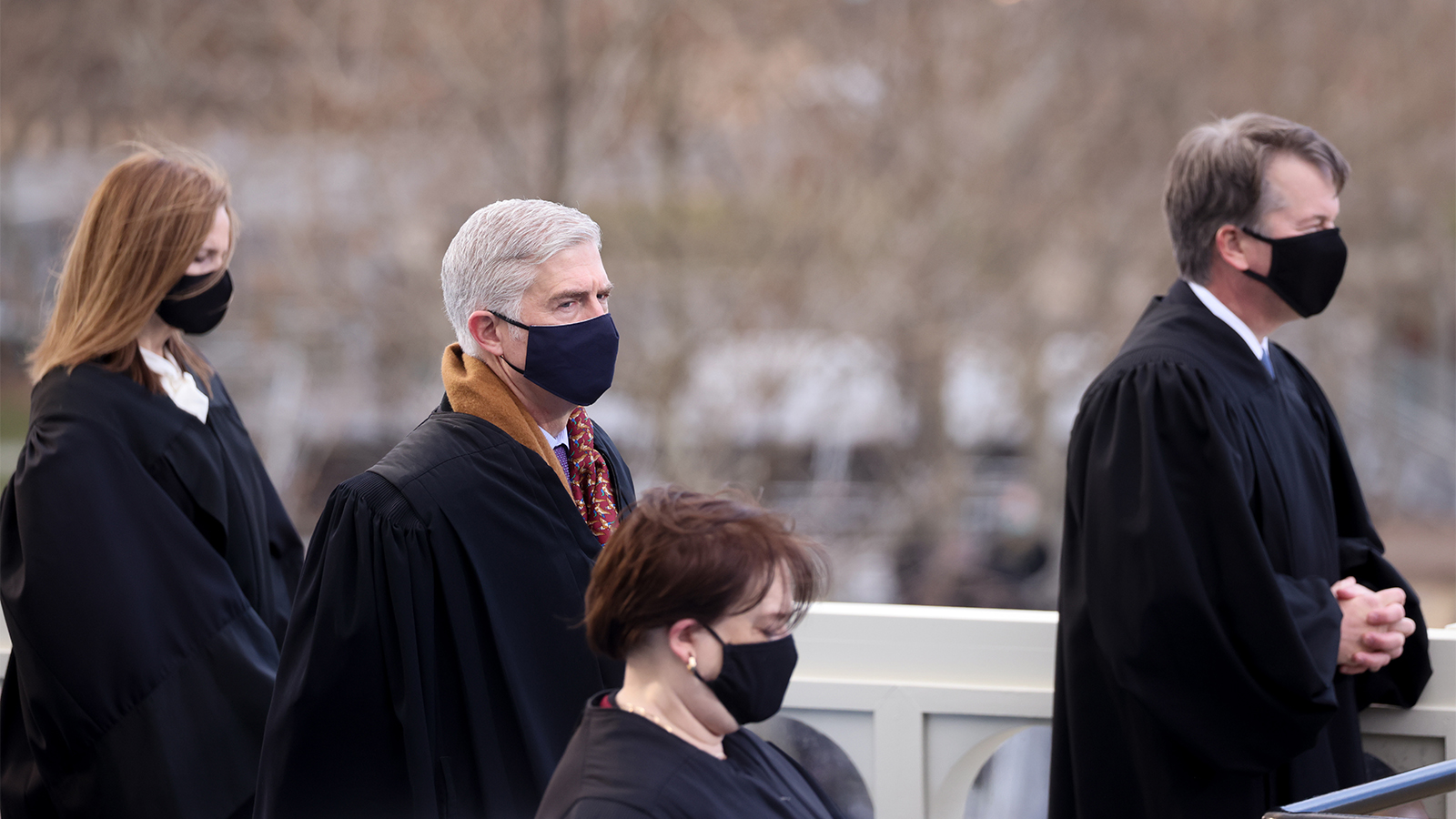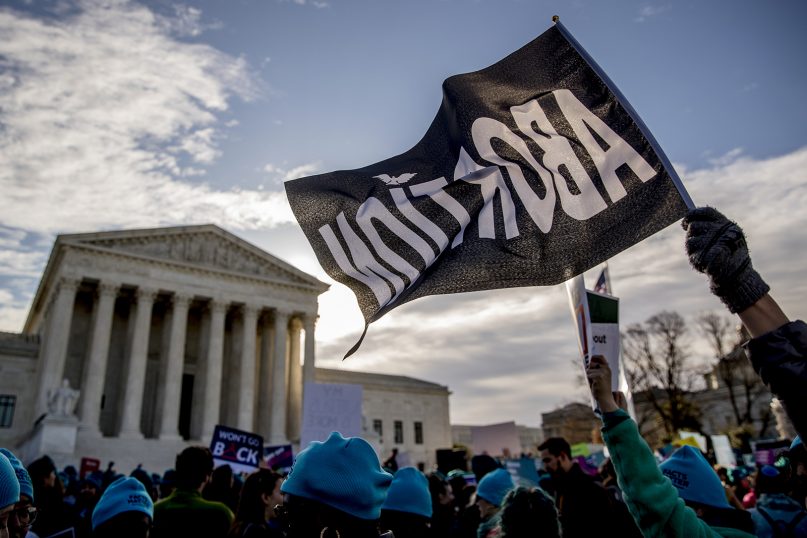WASHINGTON (RNS) — The U.S. Supreme Court will hear a case involving a challenge to a Mississippi law prohibiting most abortions after the 15th week of pregnancy, a move that could weaken abortion rights nationwide.
The case, Dobbs v. Jackson Women’s Health Organization, revolves around a Mississippi law passed in 2018 that bans all abortions after 15 weeks “except in a medical emergency or in the case of a severe fetal abnormality.” The ban was blocked by lower courts who argued it violated previous Supreme Court rulings.
The case centers on whether states are permitted to ban abortions before a fetus can survive outside the womb and is seen as a direct challenge to Roe v. Wade, a landmark 1973 Supreme Court decision that legalized abortion nationwide.
Justices will likely hear the case in the fall, marking the first time the conservative-leaning court will directly address the issue of abortion since Amy Coney Barrett was elevated to Supreme Court justice in October 2020. Barrett, a conservative Catholic, twice voted in abortion-related cases before joining the Supreme Court, both times in ways seen as benefitting abortion restrictions. In 2006, she signed a newspaper ad opposing “abortion on demand.”

Justices Amy Coney Barrett, Neil Gorsuch and Brett Kavanaugh have bolstered the conservative wing of the Supreme Court. (Photo by Jonathan Ernst-Pool/Getty Images)
Two other Trump-appointed justices — Neil Gorsuch and Brett Kavanaugh — voted in a different case last year that could have closed two of Louisiana’s three abortion clinics. They were outvoted, with Chief Justice John Roberts, a conservative, joining liberals in striking down the law in question. But with Barrett replacing the late Justice Ruth Bader Ginsburg since then, the conservative-leaning court may not need Roberts’ vote should they decide to uphold the Mississippi law.
March for Life, the anti-abortion group that hosts an annual event of the same name in Washington, D.C., expressed support for upholding the Mississippi law in a statement.
“States should be allowed to craft laws that are in line with both public opinion on this issue as well as basic human compassion, instead of the extreme policy that Roe imposed,” read a statement from Jeanne Mancini, the group’s president.
In a tweet, the abortion rights group Catholics for Choice expressed concerns the court could “drastically undermine reproductive rights in the United States,” adding: “We must under all circumstances ensure that legal abortion remains accessible and just!”





